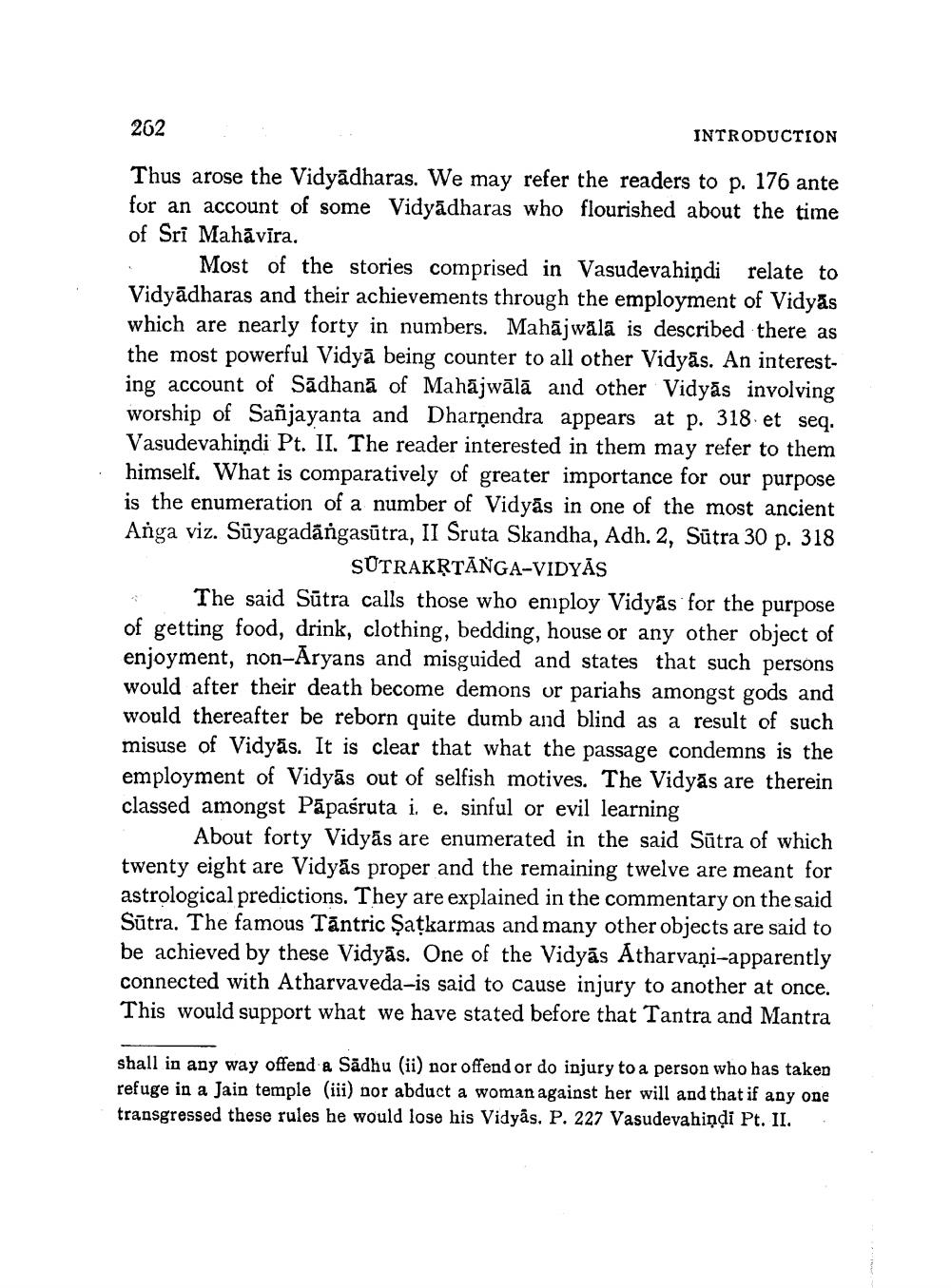________________
262
INTRODUCTION
Thus arose the Vidyādharas. We may refer the readers to p. 176 ante for an account of some Vidyadharas who flourished about the time of Sri Mahāvīra.
Most of the stories comprised in Vasudevahiņdi relate to Vidyādharas and their achievements through the employment of Vidyās which are nearly forty in numbers. Mahājwalā is described there as the most powerful Vidyā being counter to all other Vidyās. An interes ing account of Sadhanā of Mahājwālā and other Vidyās involving worship of Sanjayanta and Dharņendra appears at p. 318 et seq. Vasudevahiņdi Pt. II. The reader interested in them may refer to them himself. What is comparatively of greater importance for our purpose is the enumeration of a number of Vidyās in one of the most ancient Anga viz. Sūyagadāngasūtra, II Sruta Skandha, Adh. 2, Sūtra 30 p. 318
SUTRAKŞTANGA-VIDYĀS The said Sūtra calls those who employ Vidyās for the purpose of getting food, drink, clothing, bedding, house or any other object of enjoyment, non-Aryans and misguided and states that such persons would after their death become demons or pariahs amongst gods and would thereafter be reborn quite dumb and blind as a result of such misuse of Vidyās. It is clear that what the passage condemns is the employment of Vidyās out of selfish motives. The Vidyās are therein classed amongst Papaśruta i. e. sinful or evil learning
About forty Vidyās are enumerated in the said Sūtra of which twenty eight are Vidyās proper and the remaining twelve are meant for astrological predictions. They are explained in the commentary on the said Sūtra. The famous Tāntric Şațkarmas and many other objects are said to be achieved by these Vidyās. One of the Vidyās Atharvaņi-apparently connected with Atharvaveda-is said to cause injury to another at once. This would support what we have stated before that Tantra and Mantra
shall in any way offend a Sădhu (ii) nor offend or do injury to a person who has taken refuge in a Jain temple (iii) nor abduct a woman against her will and that if any one transgressed these rules he would lose his Vidyās. P. 227 Vasudevahiņdi Pt. II.




